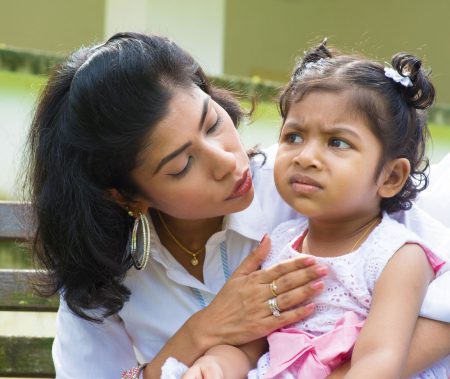Learning to Recognize Emotions
Social/emotional development includes a child’s expression, management of emotions and the ability to identify and understand one’s own feelings. Similar to cognitive development, the construction of thought processes, children need to learn their emotions and what they mean. In learning to recognize their emotions, children often build skills that connect them with family, peers and teachers. This provides an opportunity for them to learn about emotions through interactions.


Brain research indicates that emotion and cognition are connected and work together to form a child’s behavior. The National Research Council and Institute of Medicine confirms that emotions and cognition work together to provide learning and decision making. The National Research Council suggests infants’ and toddlers’ social understanding is related to how often they experience adult communication. For example, close relationships with adults who provide consistent nurturing will strengthen a child’s ability to learn and develop emotion.
Early Interactions Help Develop Empathy
As a parent, the more you are able to teach your child verbal and nonverbal cues, the stronger foundation you are laying for empathy. Empathy is being able to put yourself into another person’s shoes and feel what their feelings might be. It is an ability that children learn from their earliest interactions.
Modeling emotions in your interactions and pointing them out in others, using language to describe what you see and feel with your child provides many teachable moments throughout their growth and development. Helping your child understand how to express his or her feelings and show acts of kindness is beneficial to their social and emotional development as well. It is important to work with your child to reflect on his or her behavior. Did your child help someone at school or did they ignore the kid who wanted to play with them? Discussing your child’s behavior and the reasons behind it are all important factors of social and emotional development.


